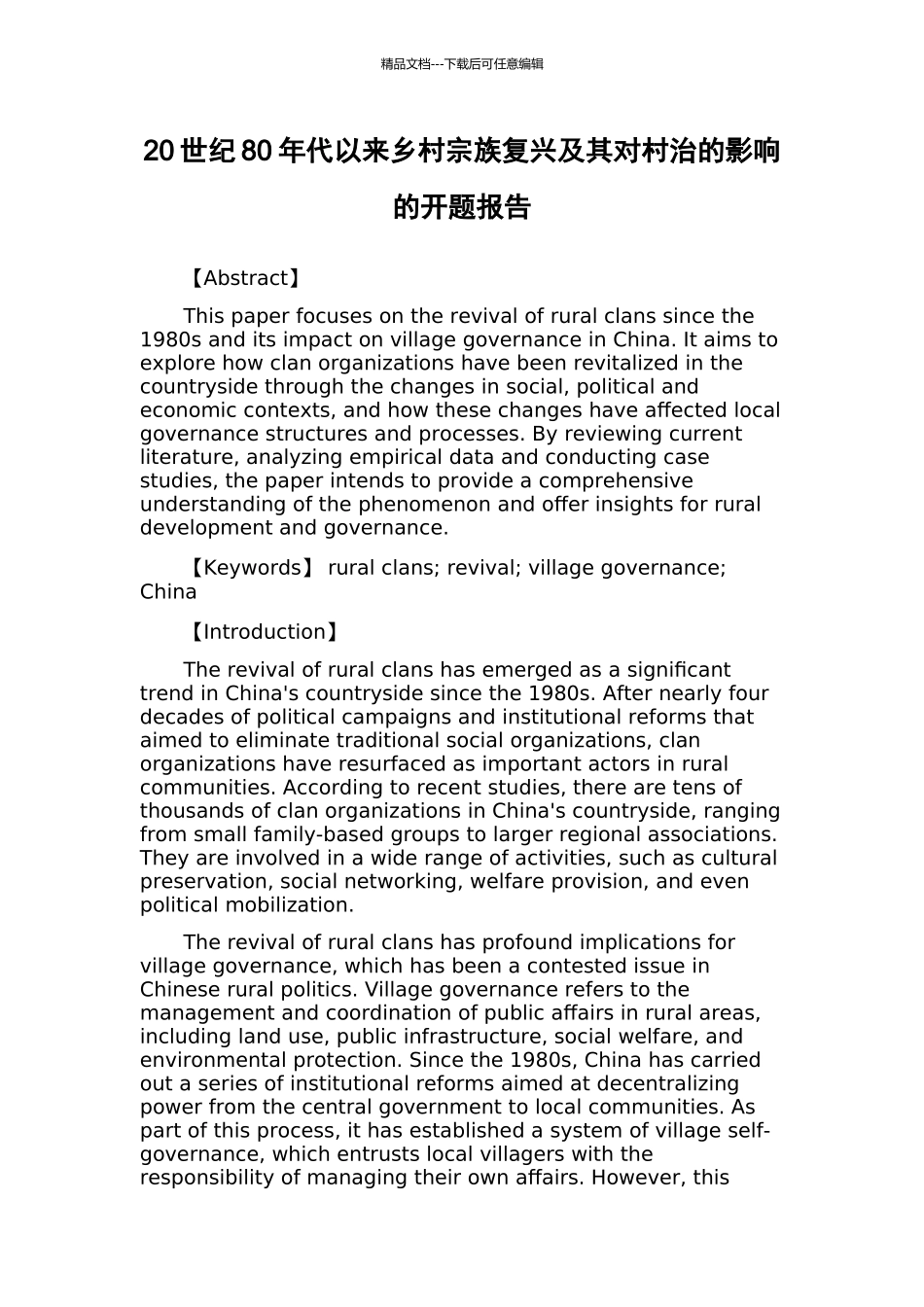精品文档---下载后可任意编辑20 世纪 80 年代以来乡村宗族复兴及其对村治的影响的开题报告【Abstract】This paper focuses on the revival of rural clans since the 1980s and its impact on village governance in China. It aims to explore how clan organizations have been revitalized in the countryside through the changes in social, political and economic contexts, and how these changes have affected local governance structures and processes. By reviewing current literature, analyzing empirical data and conducting case studies, the paper intends to provide a comprehensive understanding of the phenomenon and offer insights for rural development and governance.【Keywords】 rural clans; revival; village governance; China【Introduction】The revival of rural clans has emerged as a significant trend in China's countryside since the 1980s. After nearly four decades of political campaigns and institutional reforms that aimed to eliminate traditional social organizations, clan organizations have resurfaced as important actors in rural communities. According to recent studies, there are tens of thousands of clan organizations in China's countryside, ranging from small family-based groups to larger regional associations. They are involved in a wide range of activities, such as cultural preservation, social networking, welfare provision, and even political mobilization.The revival of rural clans has profound implications for village governance, which has been a contested issue in Chinese rural politics. Village governance refers to the management and coordination of public affairs in rural areas, including land use, public infrastructure, social welfare, and environmental protection. Since the 1980s, China has carried out a series of institutional reforms ...


